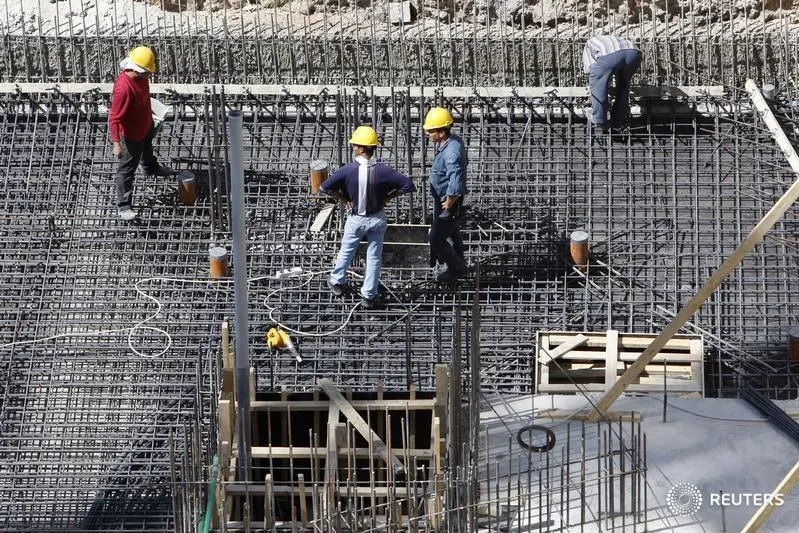PHOTO
The authorities in Jordan have inked more than $600m worth of funding agreements in recent months, with much of it earmarked for the construction of key infrastructure projects in the utilities, health and ICT sectors.
While industry participants have expressed concerns over whether Jordanian contractors will benefit from the new projects, the government continues to highlight construction's importance not only in terms of providing jobs, but also for accelerating progress on its national development plan, Jordan Vision 2025, which was announced last May.
Energy infrastructure build out
With funding secured for key energy projects, the kingdom is on track to accomplish many of its major development goals, while both local and foreign contractors stand to benefit from a broader portfolio of projects.
In July France approved a $265m soft loan for three water and energy infrastructure projects around the country, including the Wadi Al Arab water treatment project in the northern city of Irbid. The plant, which is set to receive $43m of the French funding package, will be used to ensure adequate water supply in the north-west of Jordan.
The loan also extends $55m to the Green Corridor project, a set of electricity grid upgrades being executed by the state-run National Electric Power Company (NEPCO). The company plans to build a new electricity substation and two new transmission lines, in addition to improving three existing lines.
The project aims to reinforce the country's high-voltage infrastructure backbone to increase reliability and accommodate the addition of more renewable power sources, according to the European Investment Bank, which is co-funding the project.
Progress is already taking place on the Green Corridor project, with NEPCO inviting prospective contractors to compete for pre-qualification on three separate tenders, which are set to close in mid-December.
Construction of another energy project, a new liquefied natural gas (LNG) terminal located close to the Red Sea port of Aqaba, was completed in June. The work was carried out by a joint venture between Netherlands-based BAM International and Jordanian engineering firm MAG, which were awarded the JD46.5m ($65.6m) engineering, procurement and construction contract by the Aqaba Development Corporation in December 2013.
The new LNG terminal will provide the country with an alternative to more expensive oil imports, which Jordan was forced to turn to after a string of attacks on a natural gas pipeline from Egypt. According to local media reports, plans are already in place for energy major Shell to supply the Aqaba terminal with gas via LNG carriers from Qatar.
Building up health & ICTThe construction industry is also set to benefit from recent funding agreements for a series of major health and ICT projects scheduled for the coming months.
In February Jordan signed five grant agreements worth some $176m with the Saudi Fund for Development to finance health care expansion. The funds come as part of Saudi Arabia's $1.25bn commitment to the $5bn, five-year GCC development funding programme for Jordan, which the regional organisation announced in December 2011.
The Saudi grants include $6m for the construction of laboratories for the Jordan Food and Drug Administration, $12m for an x-ray centre, and $37m for renovations and maintenance work on the King Hussein Cancer Centre in the capital. The largest share of the funding will go towards constructing the Princess Basma Hospital in Irbid, at a cost of around $70m.
Additional Saudi grants, signed in May, provide funding for other strategically important infrastructure across Jordan, including $50m to construct a fibre-optic internet backbone and $30m to develop industrial cities in the Tafila, Madaba, Jarash and Salt Governorates.
The grants are expected to create a steady stream of development projects, with the potential to offer local contractors much-needed work. The industry saw a 20% year-on-year decline in new building licences in the first five months of 2015, according to the Department of Statistics.
Playing by the rulesAs construction plans move forward, local players have highlighted the importance of enforcing regulations on contract work to ensure Jordanian firms maintain an adequate share of upcoming contracts.
The government, for its part, is trying to strike a balance. While contracting with multi-national industry majors allows the kingdom to tap foreign expertise, fast-track projects and draw on industry best practices, the authorities also want to encourage partnerships with local contractors to allow these firms to benefit from more business and knowledge transfers.
"30% of the work should go to local contractors, according to the law, but the engineering expertise is mostly imported," Wael R Toukan, president of the Jordan Contractors Association, told local media in September. According to Toukan, Jordanian contractors only receive around 10% of the work.
Closer coordination between the relevant authorities and industry representatives on the raft of planned infrastructure projects could help foster mutually beneficial partnerships, thereby boosting the competitiveness of the kingdom's domestic construction sector.
© Oxford Business Group 2015





















